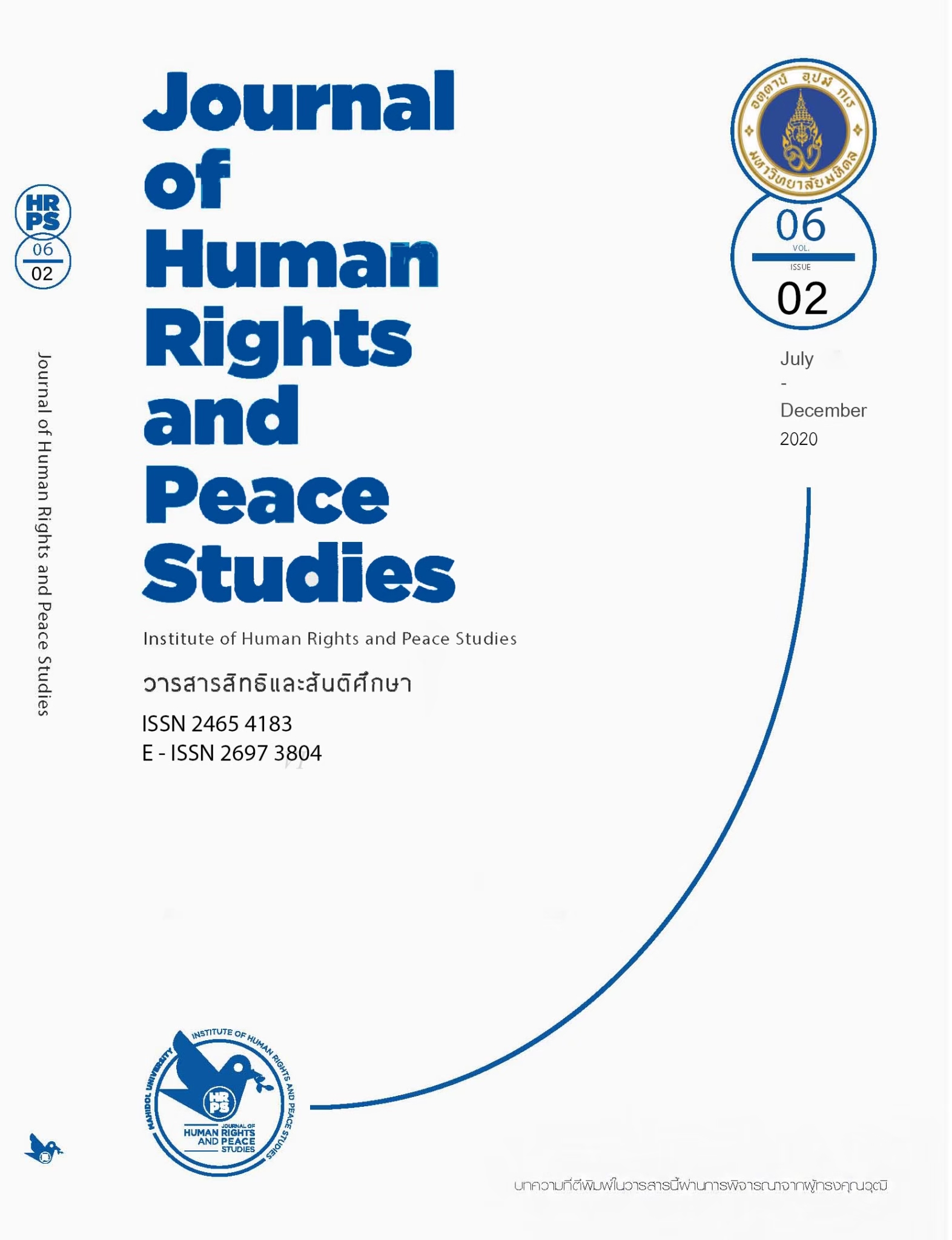Explorations in the Crafting of Government’s Authority and Power Using Institutional Ethnography: The Case of the 2013 Zamboanga Crisis
Main Article Content
Abstract
Crisis response is a clear illustration of what Migdal (2004) posits in his State-in-society approach: the iterative relationship between State authority and social actors' everyday practices. As the rise in recent natural and human-made disasters call for proficiencies in crisis response, it becomes essential to observe how the variabilities in State-in-society responses unfold through institutionally coordinated everyday social relations. The situation reveals the need to theorize these relationships on the grounds of the dynamic co-constitution of State-in-society. This study employed institutional ethnography (Devault & McCoy, 2002; Smith, 2005); observing the interplay of various actors' interests and strategies within institutional processes after the massive internal displacement that resulted from the 2013 Zamboanga siege. Whereas the Philippines is often portrayed as a weak State with a resilient population, this study suggests the Philippine State's fluid crafting, as illustrated in how various social actors reinterpret, negotiate, and appropriate State, specifically the dispersed government's power and authority during crises. The processes of assisting IDP provided opportunities for local and national actors to redefine their positions against one another and influence the crisis response process's outcomes.
Article Details

This work is licensed under a Creative Commons Attribution-NonCommercial-NoDerivatives 4.0 International License.
The views, opinions, and pictures expressed in this journal are those of the authors and do not necessarily reflect the opinions and viewpoints of the editor and the editorial board. All rights are reserved by the authors and the Institute of Human Rights and Peace Studies of Mahidol University. No part of this journal may be reproduced, stored in a retrieval system, or transmitted in any form or by any means without the prior permission in writing from the journal’s editor, or as expressly permitted by law, or under terms agreed with the appropriate reprographics rights organization. Non-commercial use of information in this journal must be properly referenced.
References
Abinales, P. (2018).War and peace in Muslim Mindanao: Critiquing the orthodoxyIn P. N.
Abinales, & P. D. Hutchcroft (Eds.), Mindanao: The long journey to peace and prosperity(pp. 39-61). Anvil Publishing.
Agence France-Presse. (2013, September 21). 'Humanitarian crisis' in Zamboanga – DSWD.https://www.rappler.com/nation/39487-humanitarian-crisis-in- zamboanga-soliman
Alagappa, M. (Ed.). (1995). Political legitimacy in Southeast Asia. Stanford University Press.
Amin-Kahn, T. (2012). The post-colonial state in the era of capitalist globalization: Historical, political and theoretical approaches to state formation.Routledge.
Canuday, J. (2009). Bakwit: The power of the displaced. Ateneo de Manila University Press.
Caringal, S. A. (2011). Shifting paradigms: Solidarity groups and the Muslim secessionist problem in the Philippines. Comparative Islamic Studies, 7(1- 2), 209-236. https://doi.org/10.1558/cis.v7i1-2.209
Charentenay, P. (2014). Hybrid Politics[Unpublished essay].
De Vault, M. L. & McCoy, L. (2002). Institutional ethnography. In J. F. Gubrium & J. A. Holstein (Eds.), Handbook of interview research: Context and method (pp. 751-776). Sage Publication.
Department of Public Works and Highways. (2014). Zamboanga City roadmap to recovery and reconstruction (Z3R) conceptual layout plan report.
International Crisis Group. (2019, June 27). The Philippines: Militancy and the new Bangsamoro. https://www.crisisgroup.org/asia/south-east-asia/philippines/301-philippines-militancy-and-new-bangsamoro
International Organization for Migration. (2013a). Zamboanga crisis situation report No. 1 (10 September 2013). https://reliefweb.int/sites/reliefweb.int/files/resources/Zamboanga%20Crisis_Situation%20Report%20No%201_10%20September%202013.pdf
International Organization for Migration. (2013b). Zamboanga crisis situation report No. 2 (13 September 2013). https://reliefweb.int/sites/reliefweb.int/files/resources/Zamboanga%20Crisis_Situation%20Report%20No%202_13%20September%202013.pdf
International Organization for Migration. (2013c). Zamboanga crisis situation report No. 5 (24 September 2013). https://reliefweb.int/sites/reliefweb.int/files/resources/Zamboanga%20Crisis%20Situation%20Report%20No%205_24%20September%202013.pdf
Jansen, S. & Lofving, S. (2009). Struggles for home: Violence, hope and the movement of people. Berghahn Books.
Lara, F. J. (2014). Insurgents, clans, and states: Political legitimacy and resurgent conflict in Muslim Mindanao, Philippines. Ateneo de Manila University Press.
Majul, C. A. (2010). Some social and cultural problems of the Muslim in the Philippines. Asian Studies, 46(1-2), 48-64.Migdal, J. (2004). State in society. Cambridge University Press.
Migdal, J. (2001). State in society: Studying how states and societies transform and constitute one another. Cambridge University Press.
Office of Civil Defense. (2013). Zamboanga City: Inter-agency rapid needs assessment (Interim Report, September 18, 2013).
Rivera, T. (2008). The struggle of Muslim people in Southern Philippines: Independence or autonomy. In B. Tuazon (Ed.) Moro reader: History and contemporary struggles of the Bangsamoro people (pp. 38-55). CenPEG.
Scott, J. C. (1998). Seeing like a state: How certain schemes to improve the human condition have failed.Yale University Press.
Smith, D. (2005). Institutional ethnography: A sociology for people. AltaMira Press.
Society for the Study of Social Problems. (2020). Institutional ethnography. https://www.sssp1.org/index.cfm/pageid/1236/m/464
United Nations High Commissioner for Refugees. (2018). Zamboanga City: Five years after the siege. https://reliefweb.int/sites/reliefweb.int/files/resources/Zamboanga-City_-5-years-after-the-siege.pdf
United Nations Office for the Coordination of Humanitarian Affairs. (2014). Zamboanga action plan.https://reliefweb.int/sites/reliefweb.int/files/resources/Revision_2014_Philippines_Zamboanga_Action_Plan.pdf
United Nations Office for the Coordination of Humanitarian Affairs. (2015). Philippines: Zamboanga crisis timeline. https://reliefweb.int/sites/reliefweb.int/files/resources/phl-ocha-zamboanga_crisis_timeline-30_june_2015.pdf
Watts, N. F. (2013). Rethinking Turkish state-Kurdish relations. In A. White (Ed.) Everyday life of the state: A state-in- society approach. University of Washington Press.


